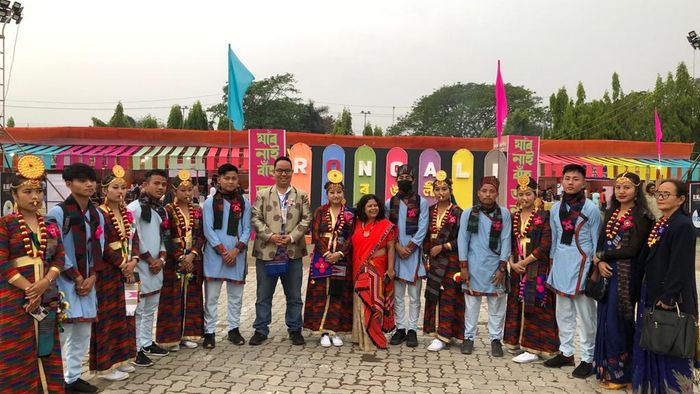Gorkhas rage against All India Women's Conference for ‘Nepali is not Indian language’ remark
AIWC executive member Chandra Prabha Pandey on June 9 sent out a note seeking contributions from its regional chapters for the proposed ‘Azadi’ celebrations. The requirement was patriotic songs and dances performed in regional languages.

- Jun 16, 2022,
- Updated Jun 16, 2022, 9:48 AM IST
The All-India Women Conference (AIWC) has been blasted by Gorkha organizations for rejecting the community's proposal for 'Azadi ka Amrut Mahotsav' celebration after labelling 'Nepali' a "non-Indian" language.
AIWC executive member Chandra Prabha Pandey on June 9 sent out a note seeking contributions from its regional chapters for the proposed ‘Azadi’ celebrations. The requirement was patriotic songs and dances performed in regional languages.
However, when artists from West Bengal's Kalimpong region submitted their work, Ms. Pandey allegedly warned them that the AIWC couldn't broadcast performances in "non-Indian languages."
Aruna Pradhan, AIWC's Kalimpong secretary, tried to reason with Ms. Pandey, but she insisted on singing the national anthem in "Nepali, not an Indian language." Ms. Pandey further stated that the Gorkhas were migrants who were therefore ineligible to play at an Indian-only event.
"By saying that Nepali is not an Indian language and refusing to allow performances in Nepali, even for the 'Azadi ka Amrit Mahotsav' celebrations, the AIWC has demonstrated purposeful bigotry against our nation's Gorkha community," Darjeeling MP Raju Bista stated.
“Perhaps, the AIWC members are unaware that our Gorkha ancestors have played a vital role in ensuring India’s independence,” he added.
"It is shocking that an esteemed organization like the AIWC has members who appear to be completely unaware that Nepali/Gorkha is spoken by 10.5 million Indian Gorkhas and is duly recognized as an Indian language under the Constitution of India's Eighth Schedule," Ramesh Bastola, the general secretary of the Bharatiya Gorkha Yuva Parisangh, said.
The Parisangh voted to take up the issue legally in an emergency meeting of its core committee held virtually on June 15 if Ms. Pandey apologised in the public domain within 24 hours after the publishing of its statement and in person at the next AIWC conference.
"At the same time, our team will file an online petition to ensure that this scenario does not happen again." Mr. Bastola stated, "We had taken up the topic of an Amazon Prime Video web series in which a Nepali language-speaking Gorkha character was portrayed in a negative manner and insulting statements were made for the northeastern community."
Following the Parisang's criticism, the Ministry of Information and Broadcasting issued a guideline for filtering content on OTT platforms.
Many people, according to the Parisangh, believe that Gorkhas in India are outsiders who have come from Nepal.
"The Gorkhas, a product of Indo-Aryan and Mongoloid assimilation, are Indian aborigines with a history dating back over 1,000 years in Assam and elsewhere in India.'